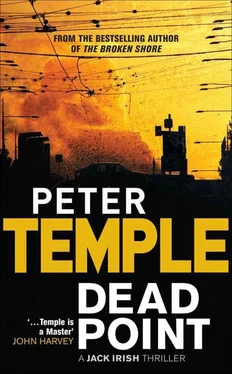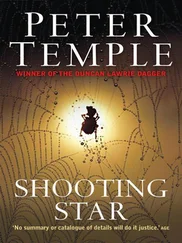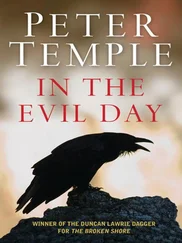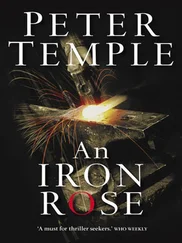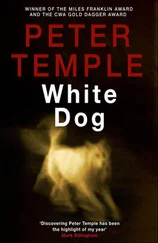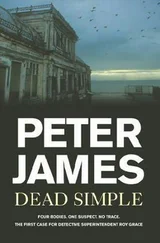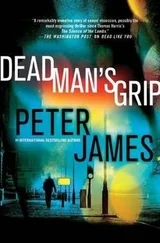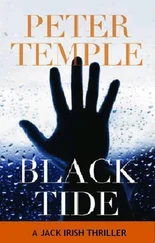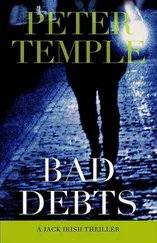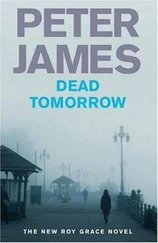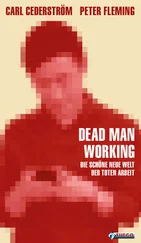Peter Temple - Dead Point
Здесь есть возможность читать онлайн «Peter Temple - Dead Point» весь текст электронной книги совершенно бесплатно (целиком полную версию без сокращений). В некоторых случаях можно слушать аудио, скачать через торрент в формате fb2 и присутствует краткое содержание. Жанр: Триллер, на английском языке. Описание произведения, (предисловие) а так же отзывы посетителей доступны на портале библиотеки ЛибКат.
- Название:Dead Point
- Автор:
- Жанр:
- Год:неизвестен
- ISBN:нет данных
- Рейтинг книги:5 / 5. Голосов: 1
-
Избранное:Добавить в избранное
- Отзывы:
-
Ваша оценка:
- 100
- 1
- 2
- 3
- 4
- 5
Dead Point: краткое содержание, описание и аннотация
Предлагаем к чтению аннотацию, описание, краткое содержание или предисловие (зависит от того, что написал сам автор книги «Dead Point»). Если вы не нашли необходимую информацию о книге — напишите в комментариях, мы постараемся отыскать её.
Dead Point — читать онлайн бесплатно полную книгу (весь текст) целиком
Ниже представлен текст книги, разбитый по страницам. Система сохранения места последней прочитанной страницы, позволяет с удобством читать онлайн бесплатно книгу «Dead Point», без необходимости каждый раз заново искать на чём Вы остановились. Поставьте закладку, и сможете в любой момент перейти на страницу, на которой закончили чтение.
Интервал:
Закладка:
I turned left, drove down to the peninsula, in the direction of what I took to be Dead Point. A few hundred metres before the tall trees began, a new fence and a gate between fat posts barred the way. Beyond the fence, hundreds of trees had been planted, gums, waist-high, planted not in lines but in clusters.
I opened the gate, went through, stopped to close it. Door open, leg out, I changed my mind, left the gate ajar, fuck the farming ethic, drove on, down into the trees.
A narrow road, twisting, etched into the land by wheels, dull water in pools, the old gums close and oppressive, blocking the light.
There was a final bend and then a clearing, large, a quarter of a football field, two timber buildings directly ahead, a ramshackle two-storey structure on the right with a set of big doors, one open a metre. The other building, single storey, was weathered but in good condition. A vehicle was parked in front of it.
An old Land Cruiser.
I parked beside it and got out. Clean air. The sea wasn’t far away, its chip-salty taste in the nasal passages.
The keys were in the Land Cruiser. No crime out here in the clean air. I followed a worn route, walked down between the buildings, not so much a path as a rut, reached a portico, a new structure, sheltering a door in the single-storey building.
No bell. This wasn’t a bell building. No knocker either.
I gave the door a few hits with knuckles, winced in pain.
Nothing.
Used the left hand to do it again.
No sound from within.
Again.
No-one home.
I tried the door handle. The door opened.
A passage. Dark. Doorways ahead, three to the left, one to the right. Outdoor clothes hung on a peg rail beside the right-hand door.
I went in, opened the right-hand door.
It was a big room, warm, a combined sitting room and kitchen lined with timber, its age and its history showing in the adzed posts and beams and the oil stains deep in the now-polished floorboards. The eastern side had once had sliding doors and the upper tracks had been left when a wall of glass was installed. In the middle of the room, a fire glowed behind the glass door of a stove.
‘Anyone home?’ I said loudly.
No sound, then a log spluttered in the firebox.
I walked to the window past a kitchen table with turned legs and through a casual arrangement of old armchairs and a sofa covered with bright rugs. Beyond the sliding glass doors, a new deck and jetty ran to the lake, huge and still and empty, shining like metal in the gloaming.
Look in the other rooms?
At that moment, nothing on earth held less appeal. I went back to the passage, opened the first door.
A tidy room holding four bunks. Empty.
The second door on the left.
I felt my skin tighten, realised my mouth was dry.
For some reason, I knocked and waited. Turned the handle, pushed the door open.
No surprises. Another bedroom, a large bed, made, nothing lying around.
The third door. A bathroom, two toilet bags on the basin cabinet.
I went out the side door, turned left down the path between the buildings. At the end of the dwelling, I stopped and looked around. The two-storey building had been the boat workshop. Out of its yawning front entrance, wide-apart rusty steel trolley tracks ran down to the water’s edge and disappeared under water. Boats had been brought up to the tracks and a wheeled cradle run under the keels. Then they had been winched up the incline into the huge shed.
The shed was a half-dark, empty cavern. I went in, feeling the texture of the packed and oily dirt floor underfoot. Now the cradle stood at the end of its track, near the back doors, piled with 44-gallon drums. It was all that remained of the trade plied in this great space, the hard work of repairing boats.
I went back into the house, into the sitting room, looked out of the window.
A sailing boat was coming in to the jetty, sails furled, under power, two people in yellow rainslicks on board, one at the tiller, one leaning on the cabin.
I moved back from the window and watched the person at the tiller take the boat up to the landing at a near right angle, change direction sharply, cut the power, drift the vessel gently side-on to meet the jetty.
The other person stepped off the boat, went to the bow to begin tying up. A man. He was joined on the jetty by his companion, a woman, who secured the stern line, got back on board, closed the cabin, put a cover over the engine. The man waited for her, put out a hand. She took it. On the jetty, they embraced, kissed, I saw her teeth flash as she laughed. They walked towards the house, his right arm around her shoulders, her left arm around his waist.
I sat down in an armchair, the springs compressing unevenly beneath me.
Waited.
I heard them in the passage, laughing. They would be hanging up their yellow rainslicks.
She came into the room first, didn’t see me, ruffled her hair with both hands, an attractive sight.
‘Warmth, warmth,’ she said, turning back, ‘I don’t understand…’
He was in the doorway and he saw me and she saw it in his eyes.
I stood up.
‘Good evening,’ I said. ‘Susan. Marco.’
45
‘A drink,’ said Susan Ayliss. ‘We need a drink. Malt, that’s what we need. Double single malts.’ She went to the long kitchen counter, where bottles stood on a tray.
Marco walked over, tall, slim, colour on his cheekbones from the cold, wearing a polo-neck sweater. He looked a little older in the flesh.
‘You’ve been looking for me,’ he said, smiling, putting out his right hand.
I shook it. His handshake made no attempt to impress.
‘Not looking for you,’ I said. ‘It never occurred to me until yesterday that you might not be dead. I’ve been trying to find out who killed you and who had Colin Loder’s album.’
‘Drink,’ said Susan Ayliss. She had three glasses on a tray, a bottle in her hand. Marco took the bottle and half-filled the glasses.
I took a glass, put it to my lips, welcomed the smell of campfire clothes, the dark taste.
‘Let’s sit,’ said Susan. She put the tray on the coffee table, switched on two table lamps.
We sat, Susan and Marco on the sofa, not people at ease. I drank some more whisky.
‘I’d like to know a few things,’ I said.
‘I don’t have the album,’ said Marco. ‘I’m sorry.’
‘Where is it?’
‘The person I took it for, he’s got it.’ He had a gravelly voice, a man with a cold.
I didn’t say anything. We sat in silence. A wind was coming up, gusting, rattling the iron roof. Marco put a hand on Susan’s knee, a gesture of comfort.
‘I don’t know what you know,’ said Marco. He tasted the whisky. ‘Xavier Doyle. At The Green Hill?’
I nodded.
‘Doyle’s got it. They’re in deep with this drug thing the judge’s hearing. You know…’
‘Yes.’
‘The guys who brought the stuff in, they were told they’d walk, some technicality I don’t understand. Anyway, the pictures, that’s insurance, concentrate the judge’s mind.’
‘Doyle and who are in deep?’
‘And Cundall. They’re both in financial shit. Cundall went to South Africa and met this importer. The guy brings it in by the container. So he came back and worked out this wonderful scheme with Doyle.’
‘The judge,’ I said. ‘You knew he had pictures?’
Marco blinked, twice. ‘Yes,’ he said. ‘Doyle knew.’ He drank some malt.
‘How would he know that?’
‘Knows everything, the X.’
‘X arranged for Loder to be in the Snug?’
Marco’s fingers went over his hair. He looked at Susan, a long look, his eyes came back to me.
‘Yes,’ he said. ‘I let him blow me. Closed my eyes and thought of England.’ He smiled, an open smile, careless of anyone’s opinions.
Читать дальшеИнтервал:
Закладка:
Похожие книги на «Dead Point»
Представляем Вашему вниманию похожие книги на «Dead Point» списком для выбора. Мы отобрали схожую по названию и смыслу литературу в надежде предоставить читателям больше вариантов отыскать новые, интересные, ещё непрочитанные произведения.
Обсуждение, отзывы о книге «Dead Point» и просто собственные мнения читателей. Оставьте ваши комментарии, напишите, что Вы думаете о произведении, его смысле или главных героях. Укажите что конкретно понравилось, а что нет, и почему Вы так считаете.
